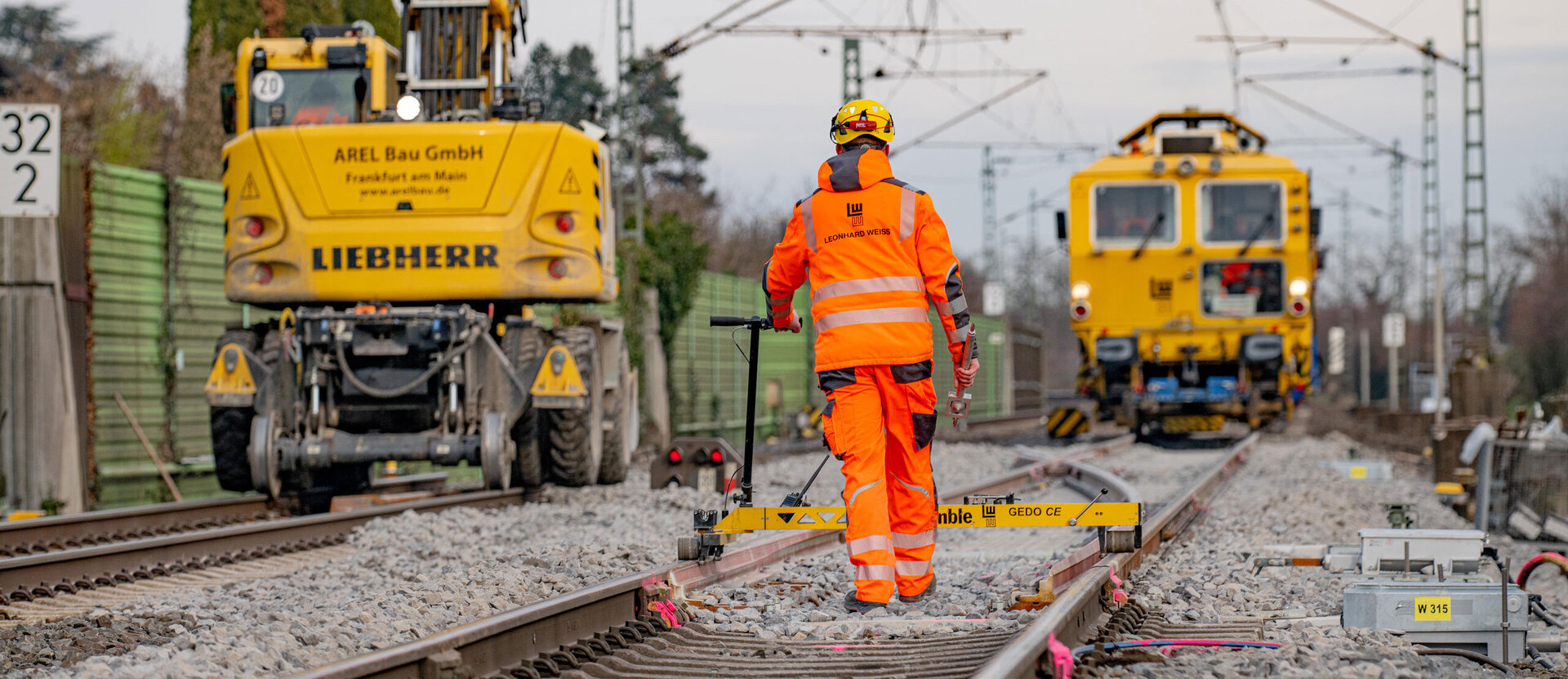Mammoth project RIEDBAHN
To keep their eyes on the prize, mountaineers plan long ascents in large stages. Deutsche Bahn is now doing the same in view of the major challenges facing rail transport in Germany. In order to achieve the German government's key transport and climate policy goals, passenger transport performance must double and the market share of rail freight transport must increase significantly. All this on a network that is already heavily congested, with an ageing infrastructure that is subject to frequent disruptions and delays.
The problems are not new. What is new, however, is the strategy with which Deutsche Bahn wants to reach the summit of a "high-performance network of the future". And this is where LEONHARD WEISS comes in.
Top priority is being given to the renovation of heavily used corridor routes. Instead of many small construction sites scattered all over the place, Deutsche Bahn wants to overhaul them in a concerted, mammoth operation. For several months, the line will be completely closed and everything that is outdated will be tackled, from tracks and points to overhead lines, signalling, bridges, level crossings and platforms.
For the construction companies, these corridor projects mean logistical and technical excellence. A challenge that LEONHARD WEISS is very familiar with. The construction company took part in the Europe-wide invitation to tender for the "Riedbahn" pilot corridor project - and was awarded the contract together with three other companies.
And the first stage on the way to the high-performance network is quite something. The 70- kilometer-long Riedbahn will run between Frankfurt (Main) Stadium and Mannheim Central Station through the Hessian Ried via Groß-Gerau, Biblis and Lampertheim. Up to 300 local, long-distance and freight trains travel here every day at speeds of up to 200 kilometers per hour. Capacity utilisation on some sections is over 150 per cent. Delays that occur on this central line affect the entire rail network.
The official launch will take place on 15 July 2024, after the European Championship. The planning and preparatory work by LEONHARD WEISS and a consortium partner began in September 2023. Together, they are realising Lot 1 and thus the northern of the two sections from Frankfurt to Biblis.
The Riedbahn is an extraordinary project that has never been realised before. And it is a mammoth task. By December 2024, 117 kilometers of track along the entire route will have been renewed, 20 stations will have been made more attractive and accessible, 140 kilometers of overhead lines and more than 150 points will have been replaced. In addition, extensive work was carried out on control and safety technology, with new electronic signal boxes, the installation of the European Train Control System (ETCS) and the renewal and construction of 15 kilometers of noise barriers. During the five-month closure, 150 buses and 400 bus drivers were available to provide alternative transport.
The Riedbahn is a pioneering project that even has its own YouTube series called 'Bahnsinn. Eine deutsche Baustelle'. And the hopes are high: by bundling the many upcoming construction projects, the Riedbahn will be freed from fragmented construction work for many years to come and will be less susceptible to disruptions – with a positive effect on the entire network. A new Mannheim – Frankfurt line is also planned to provide further relief in the future, but this will take several years to complete, probably by 2030.
The 'Riedbahn' pilot corridor project is only the first stage in the mobility of the future, but perhaps the most important and instructive. LEONHARD WEISS is proud to have been involved in this pioneering mammoth infrastructure project. Expectations were high. But we were convinced: when the light turns yellow, everything will be fine.
